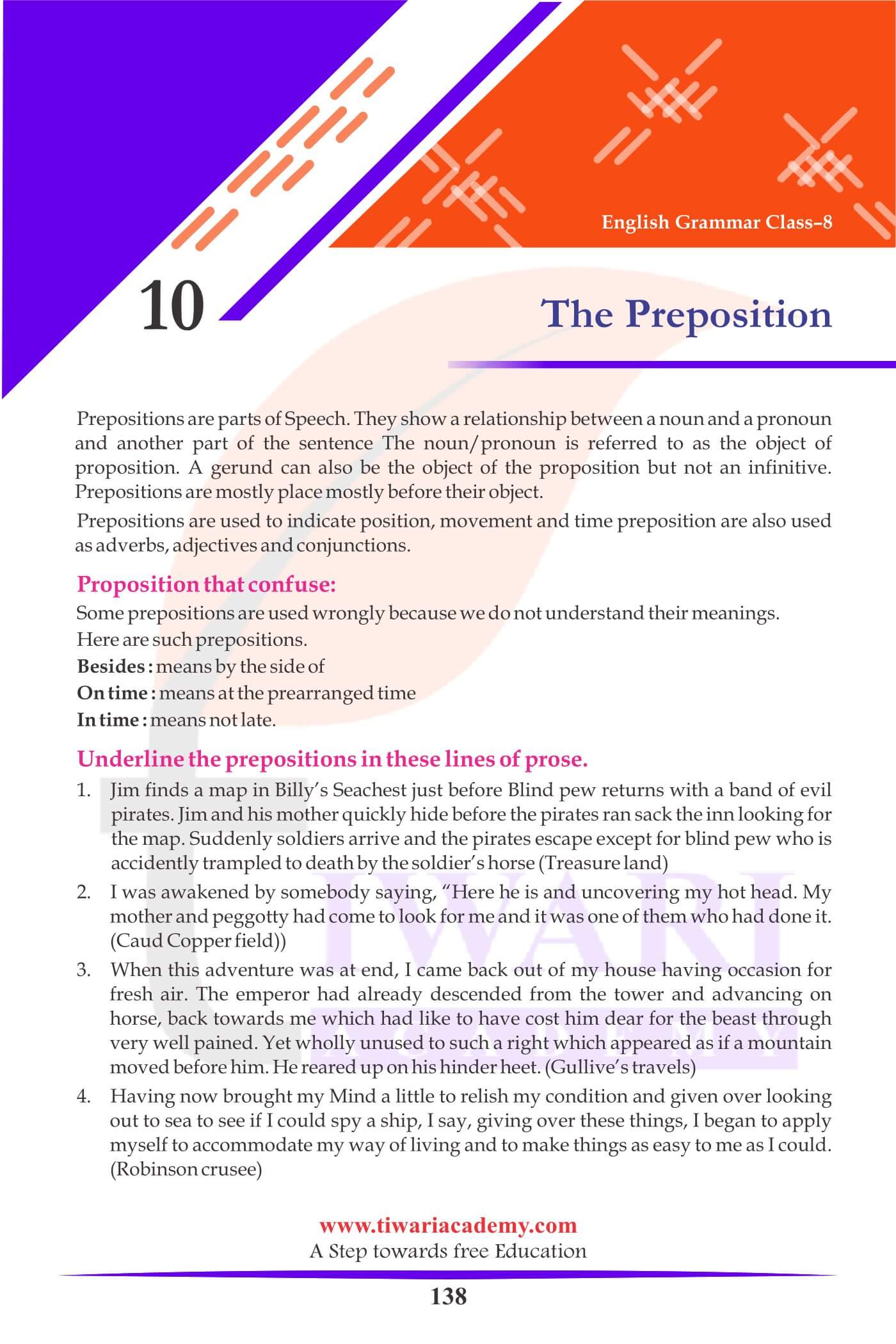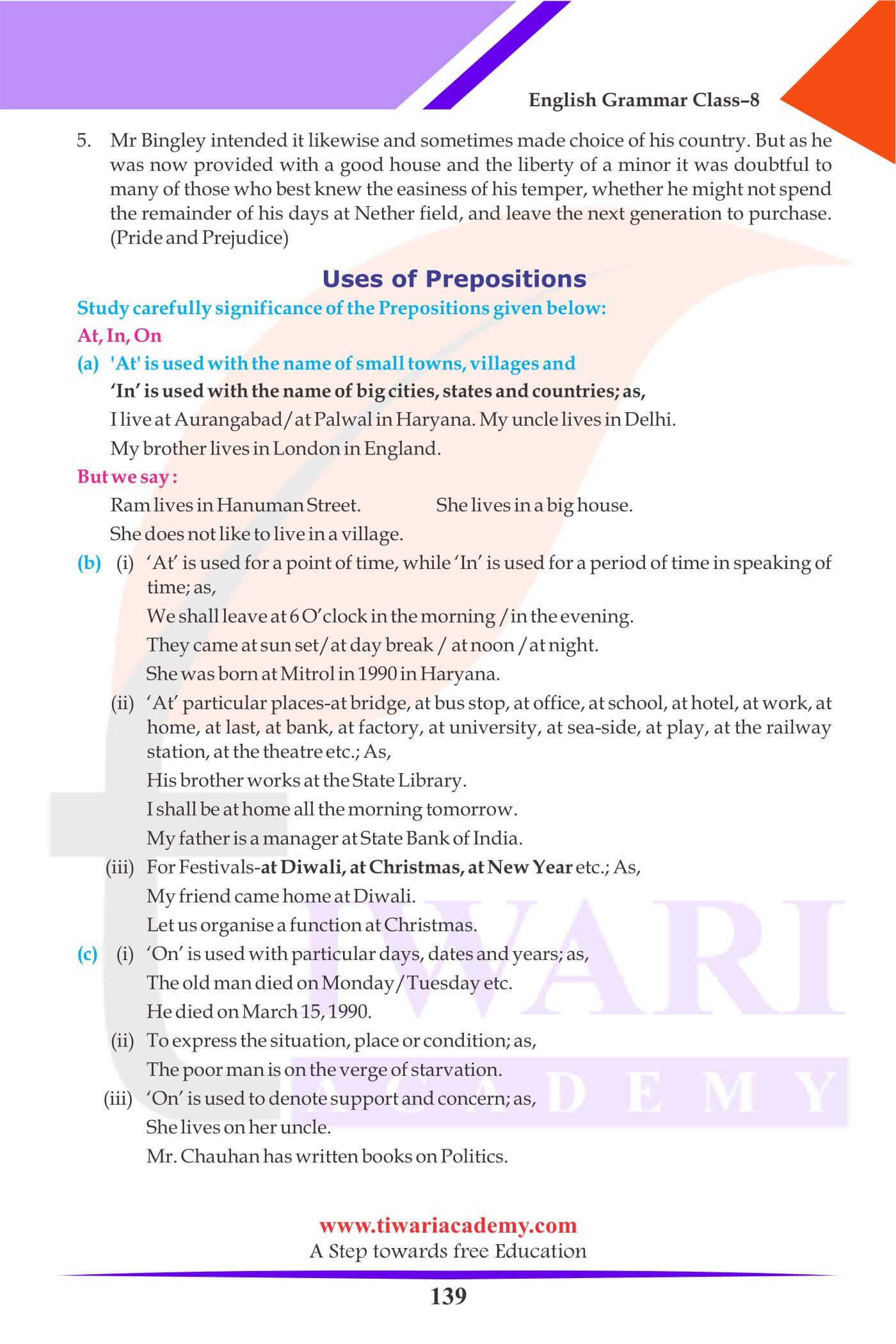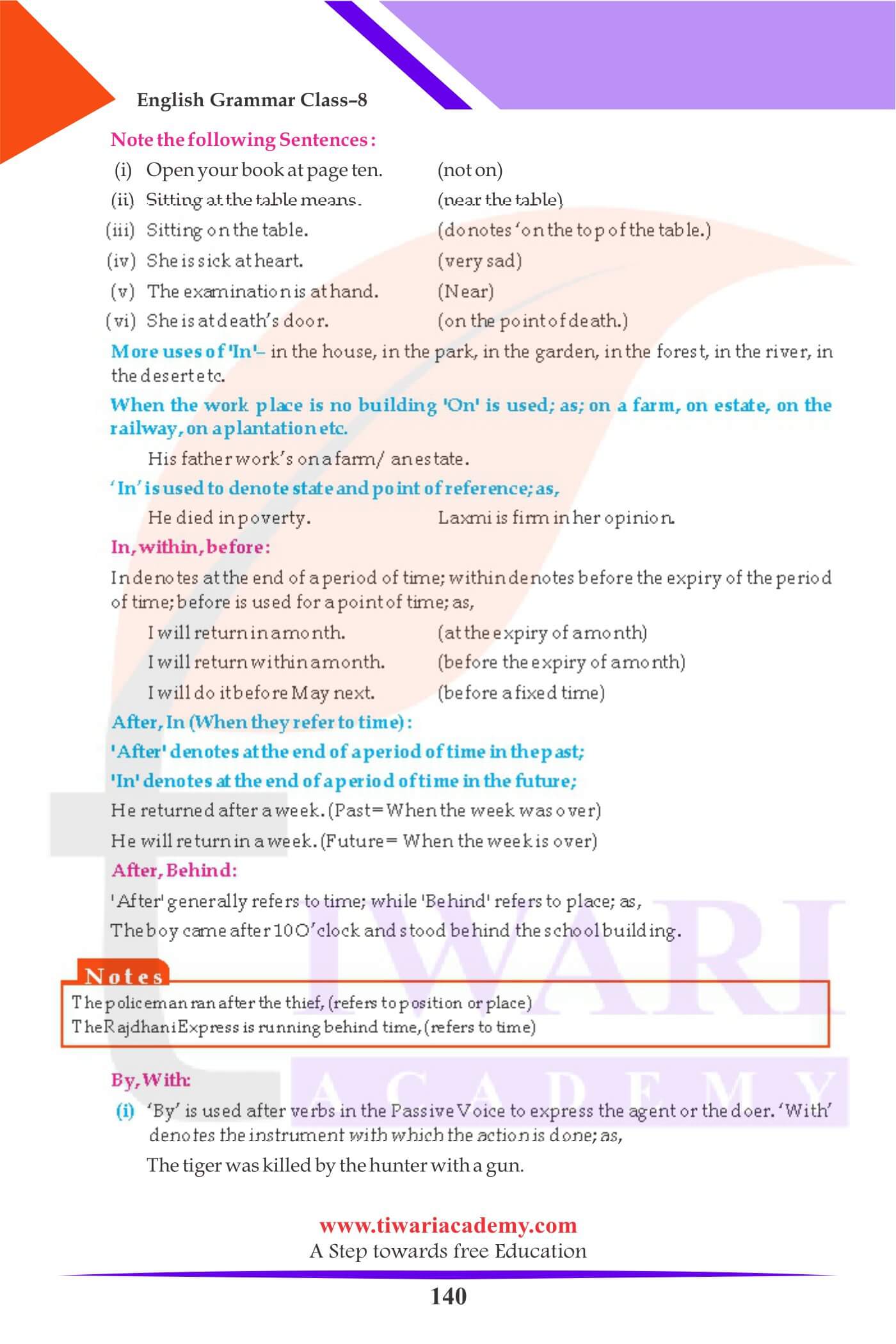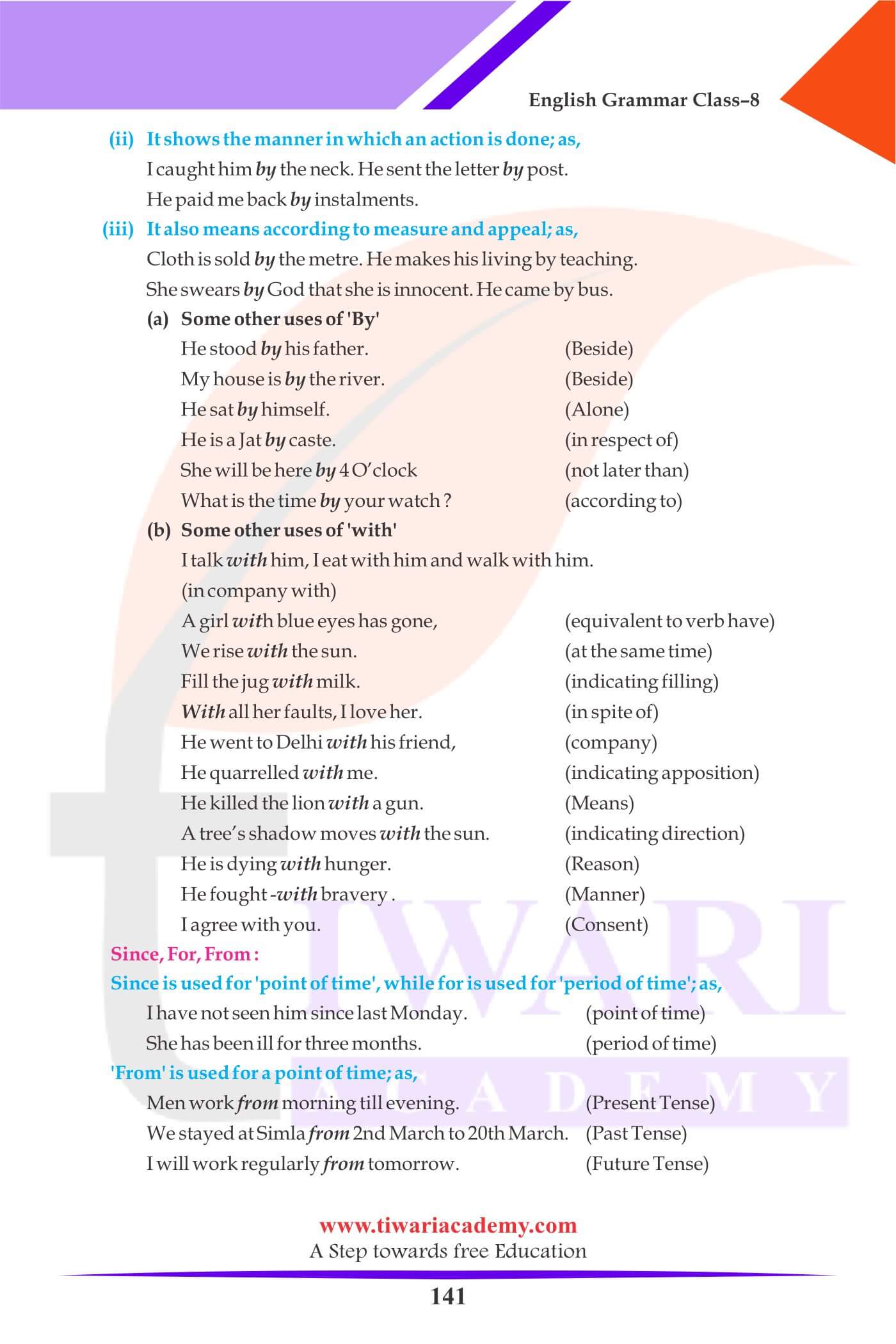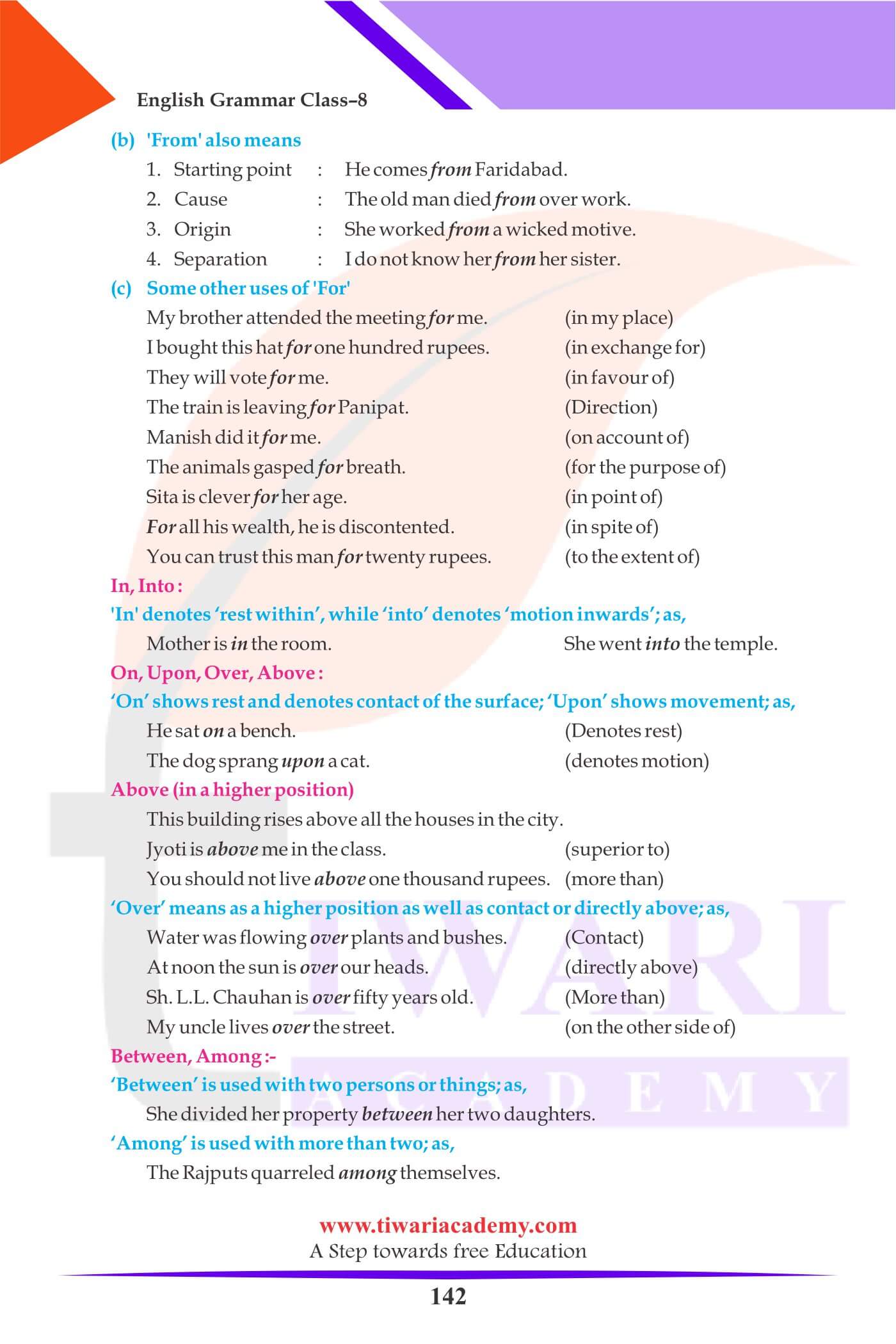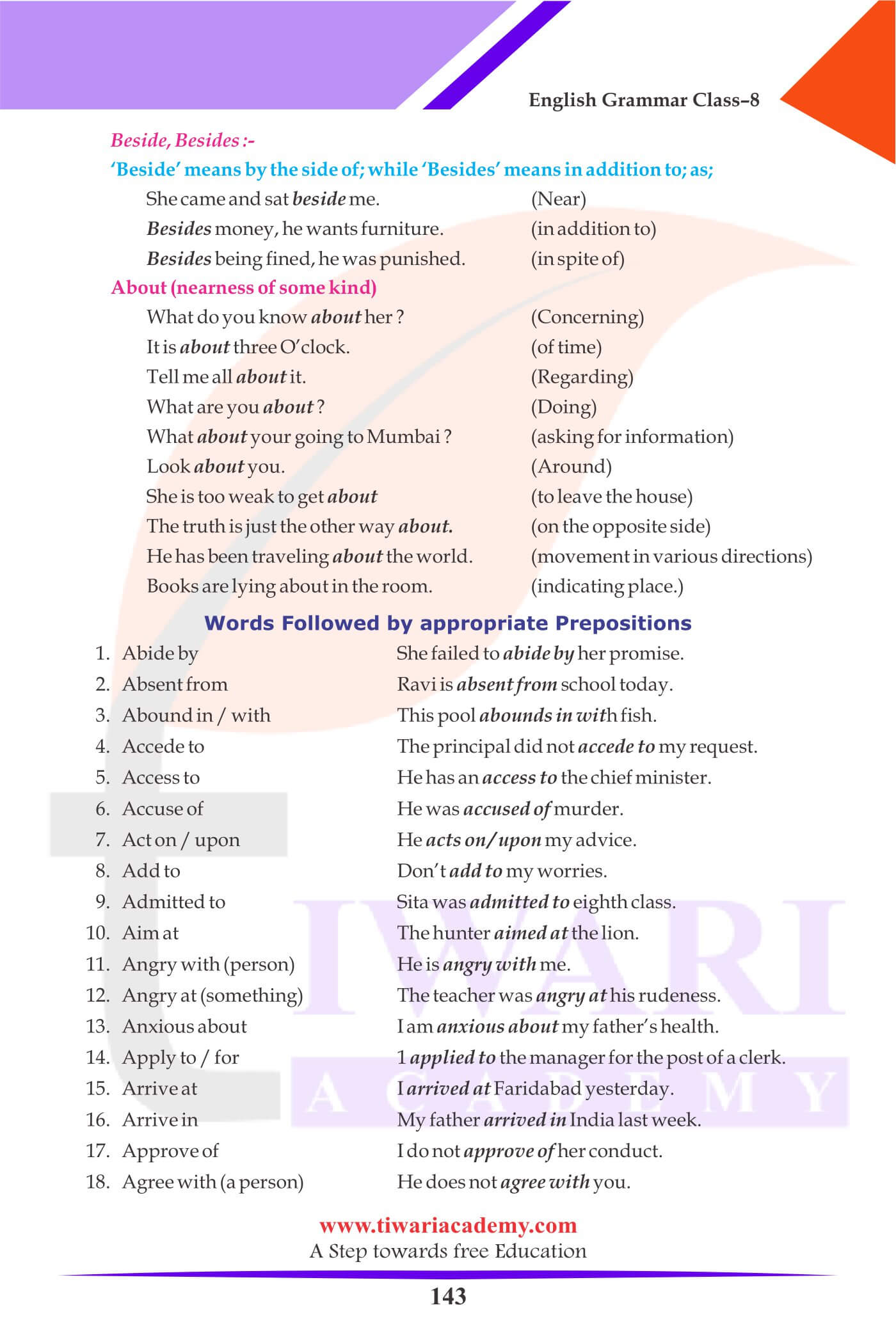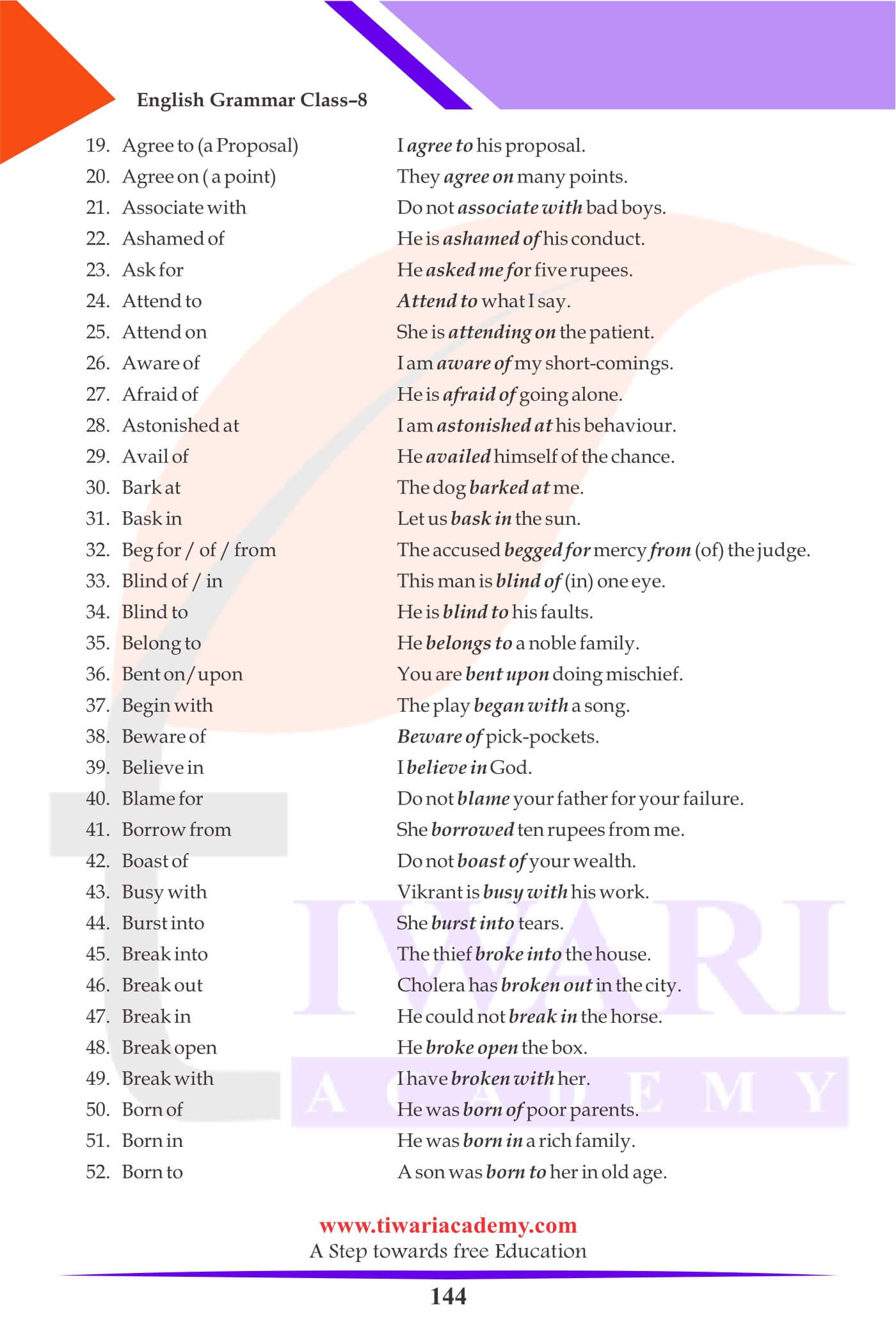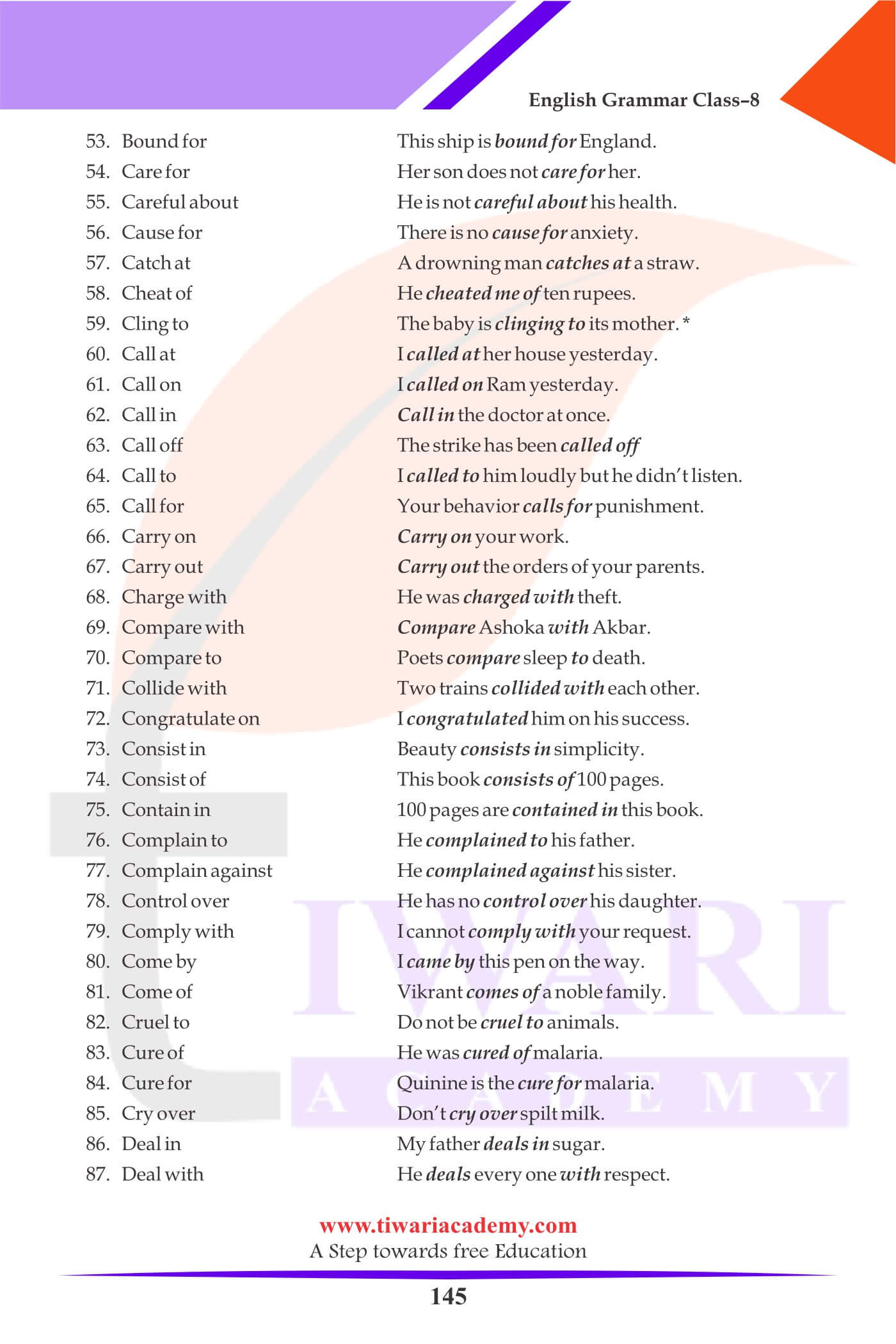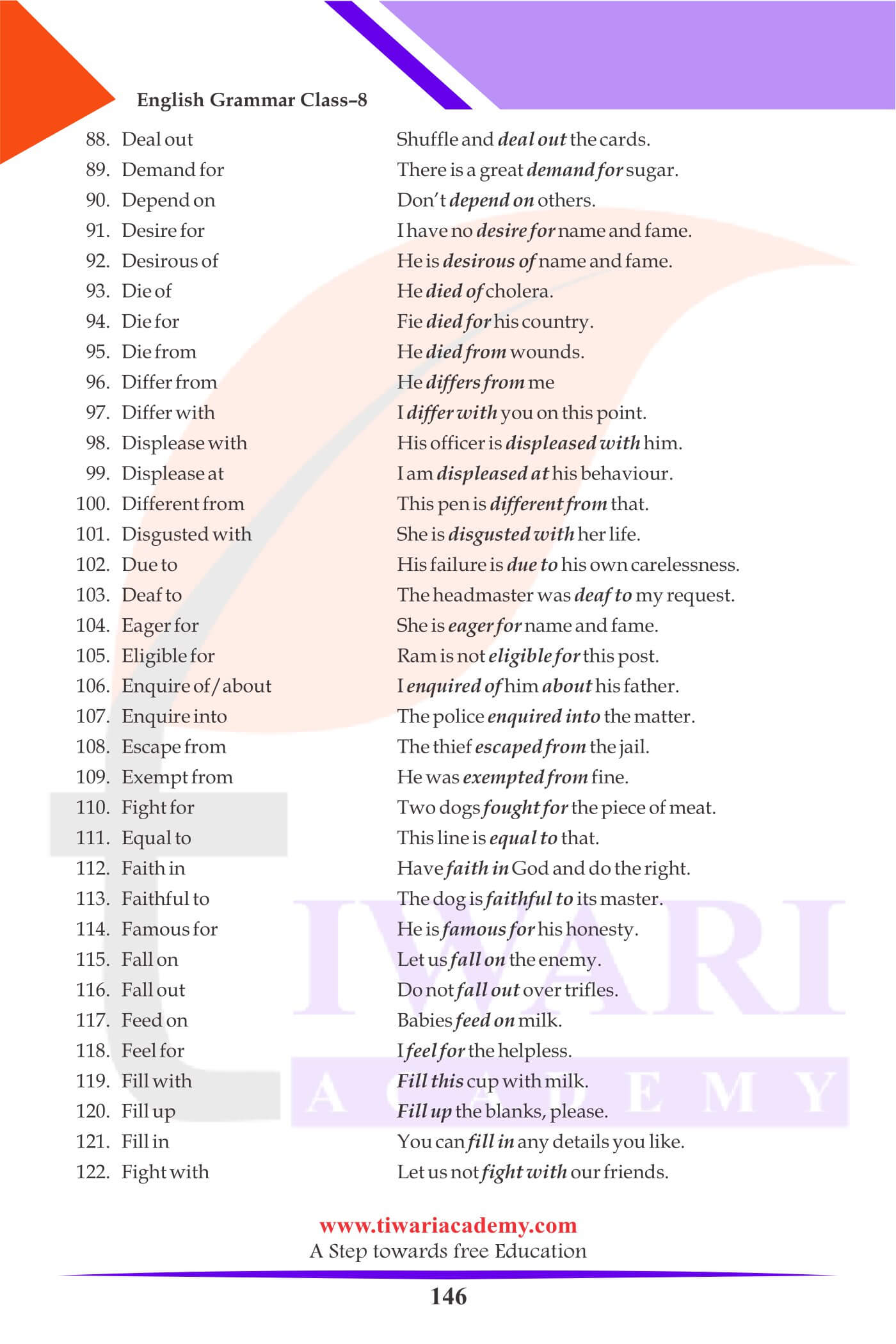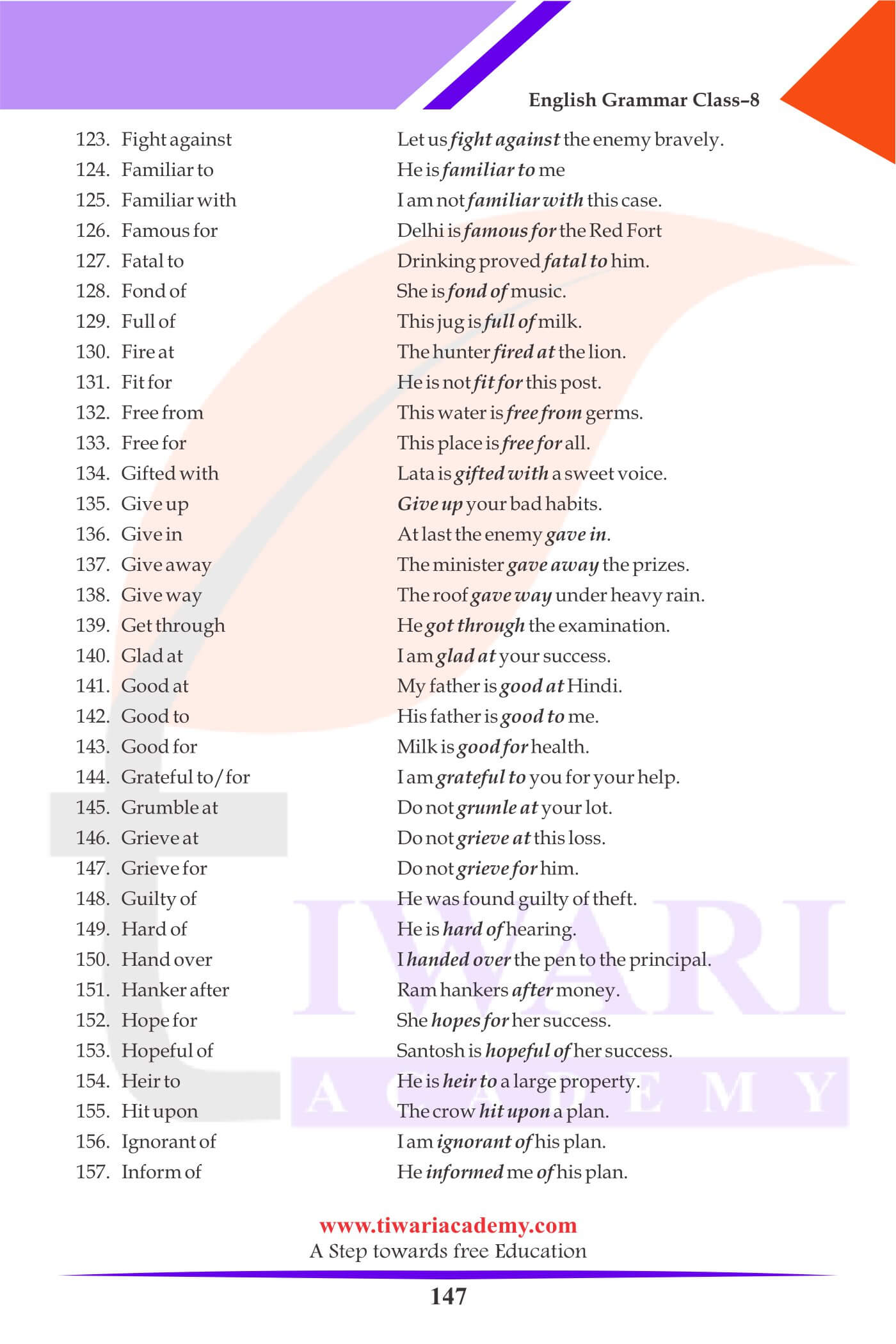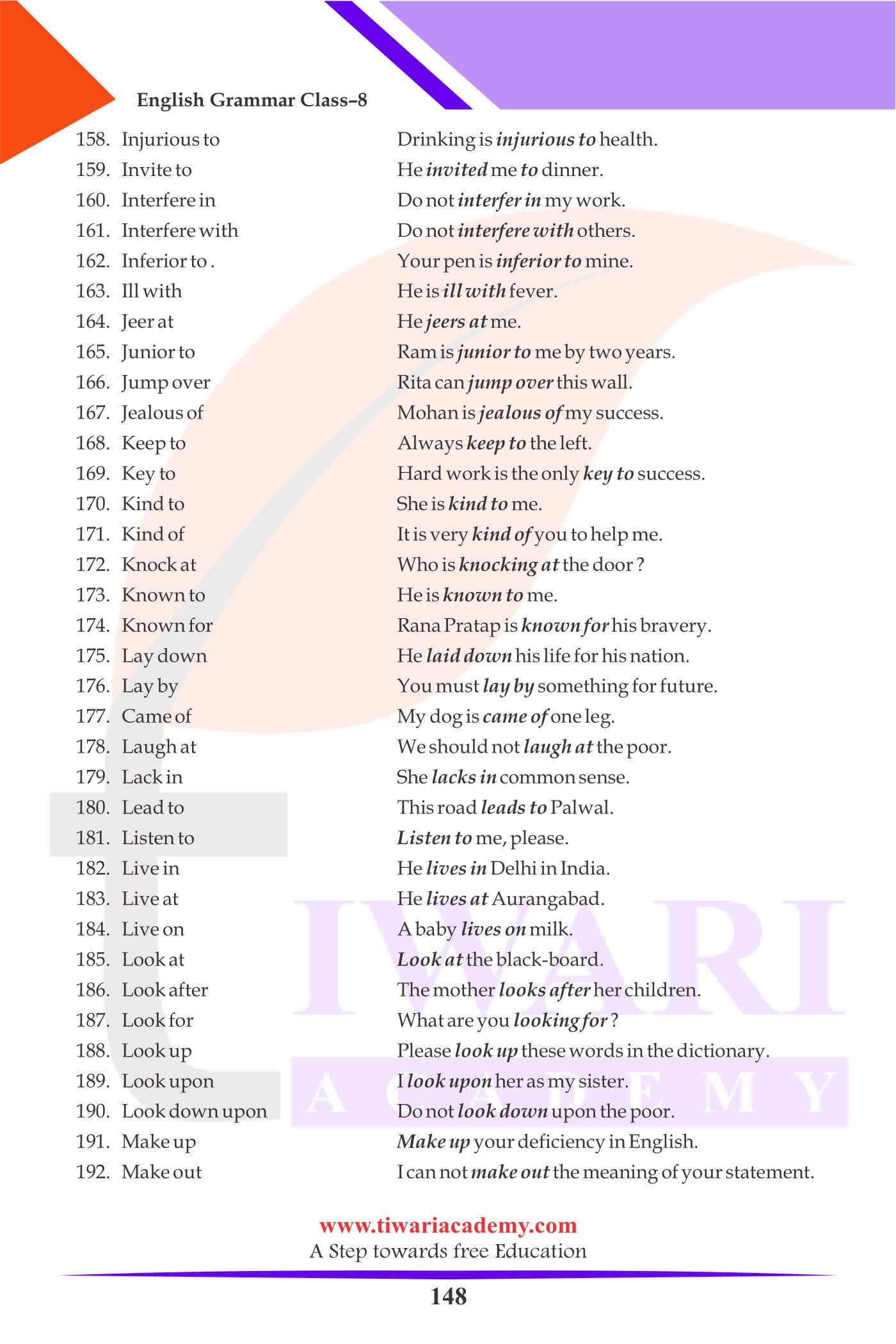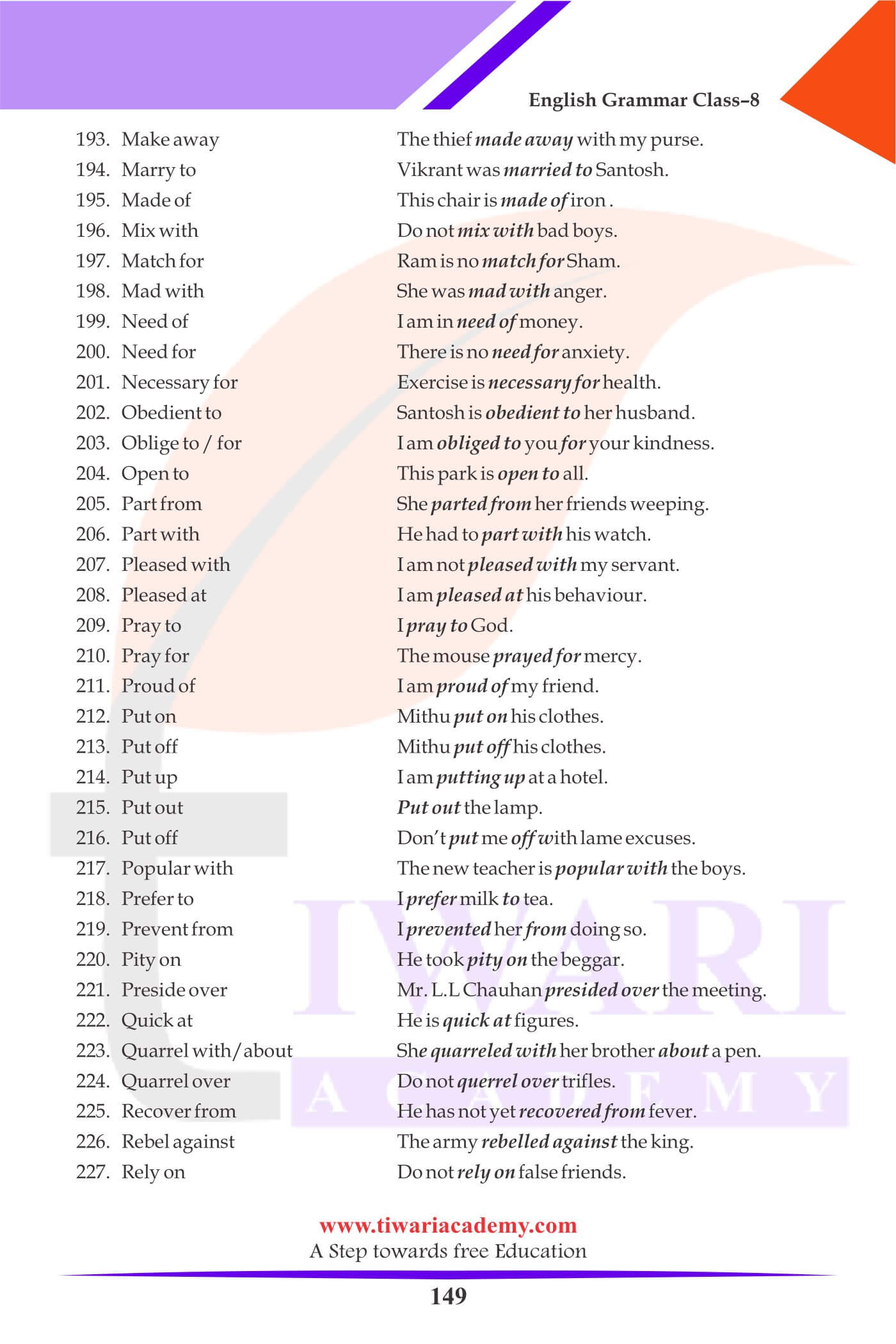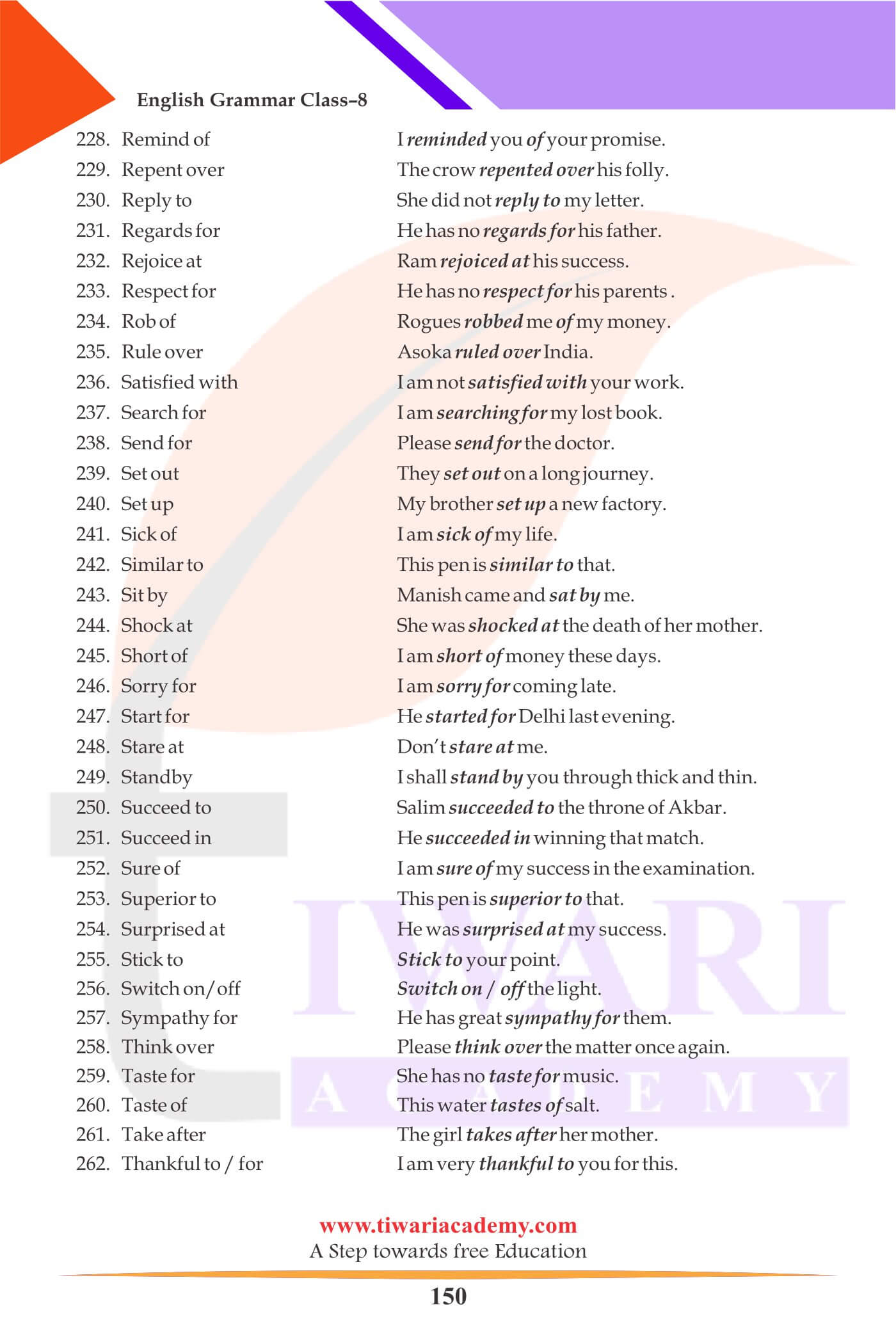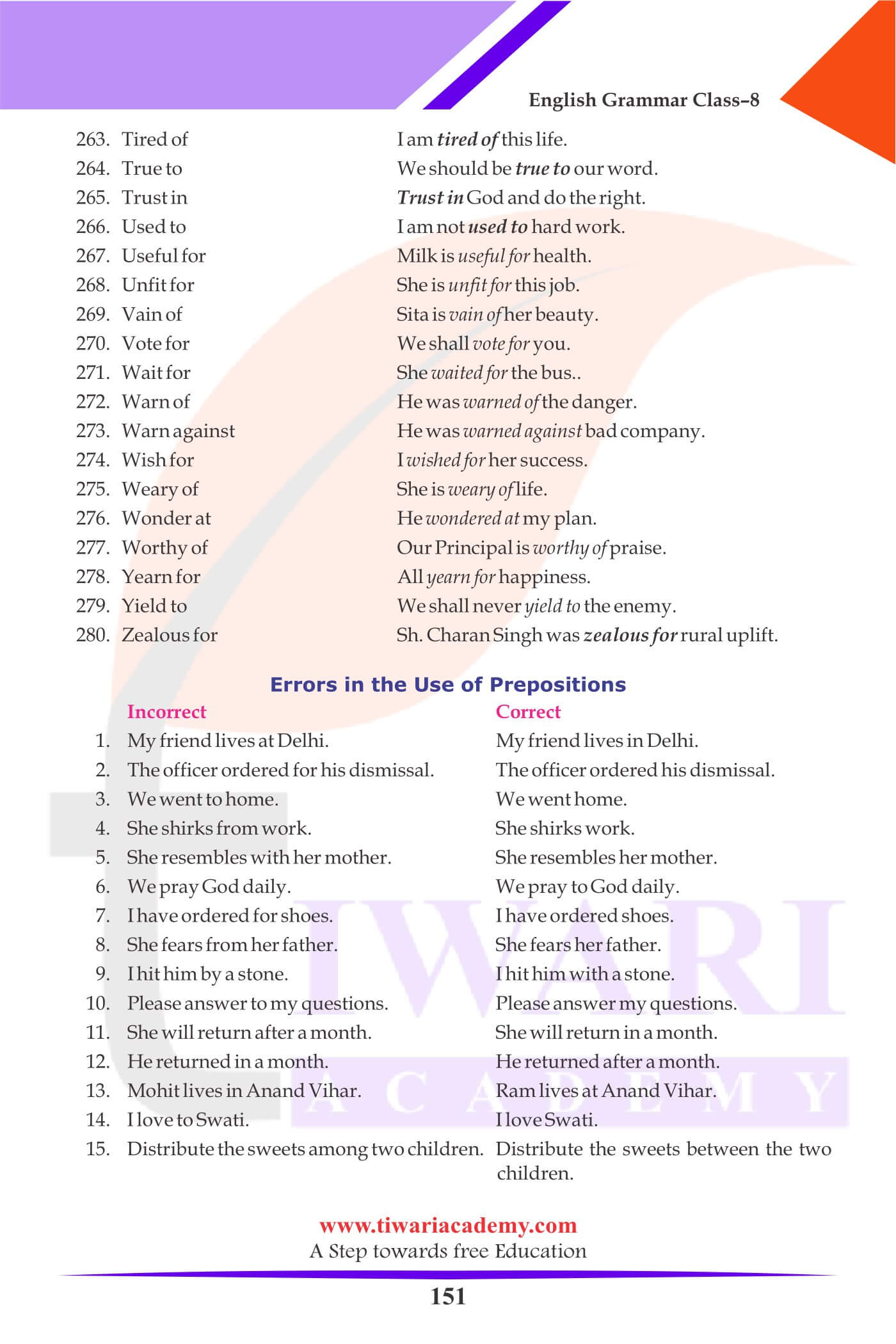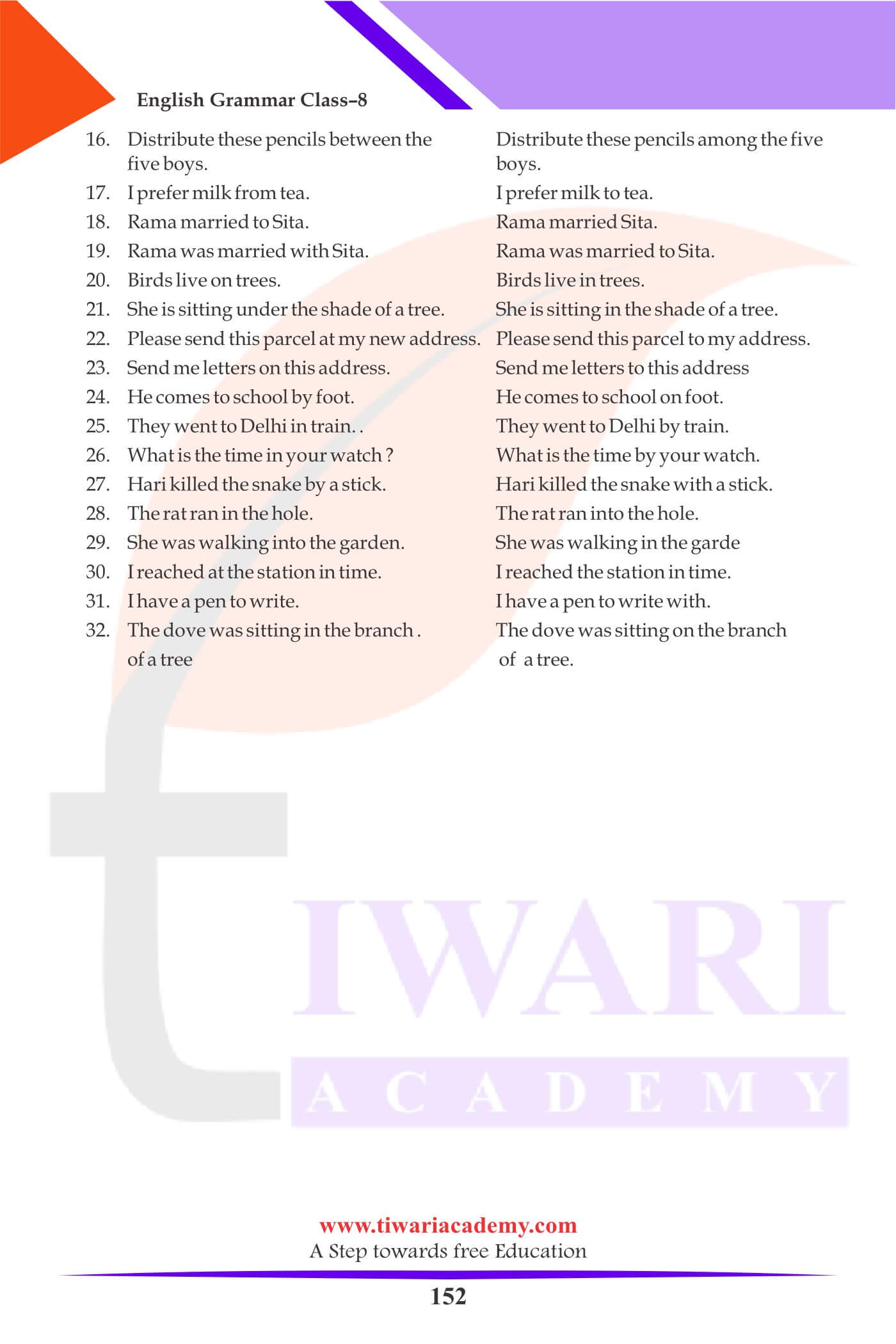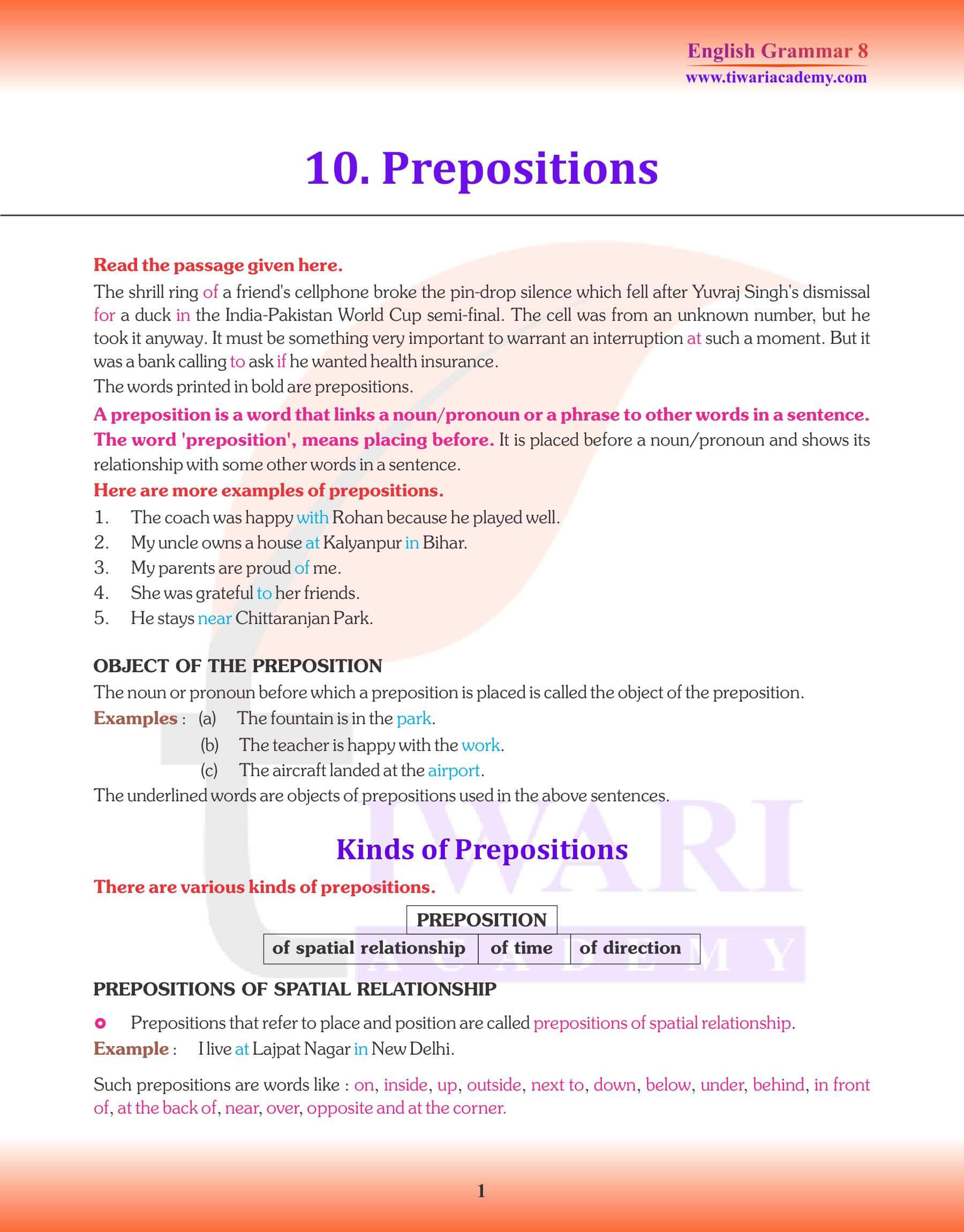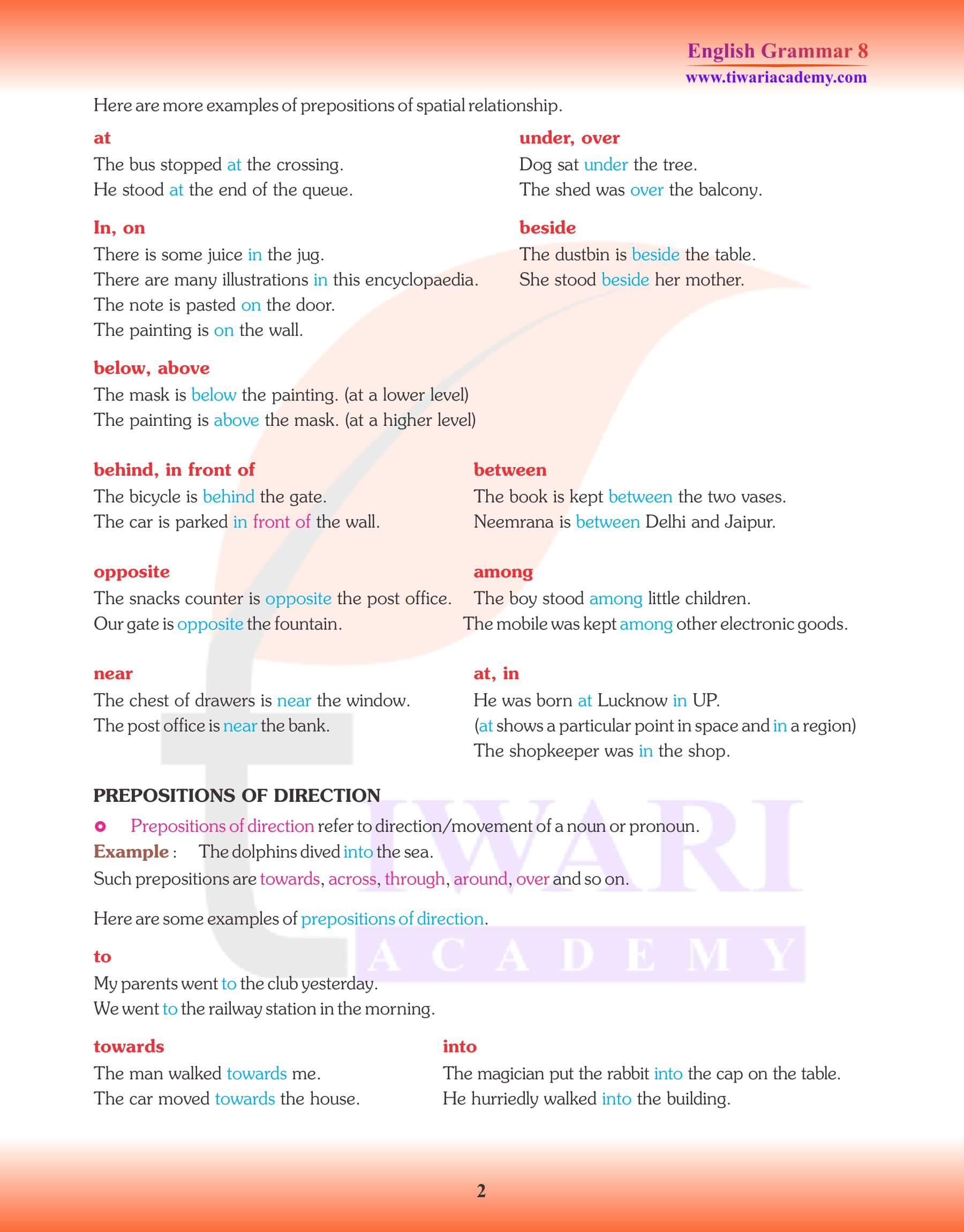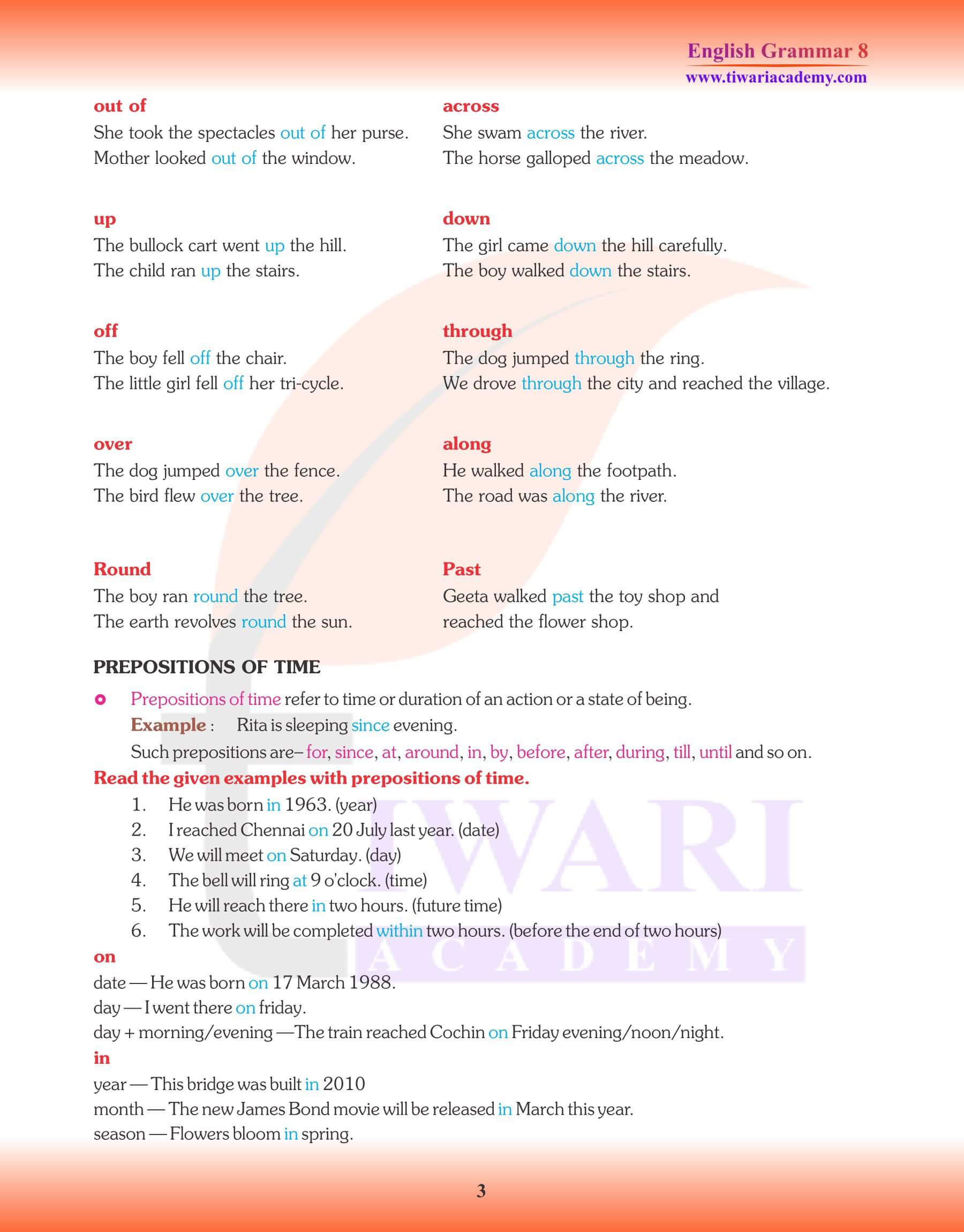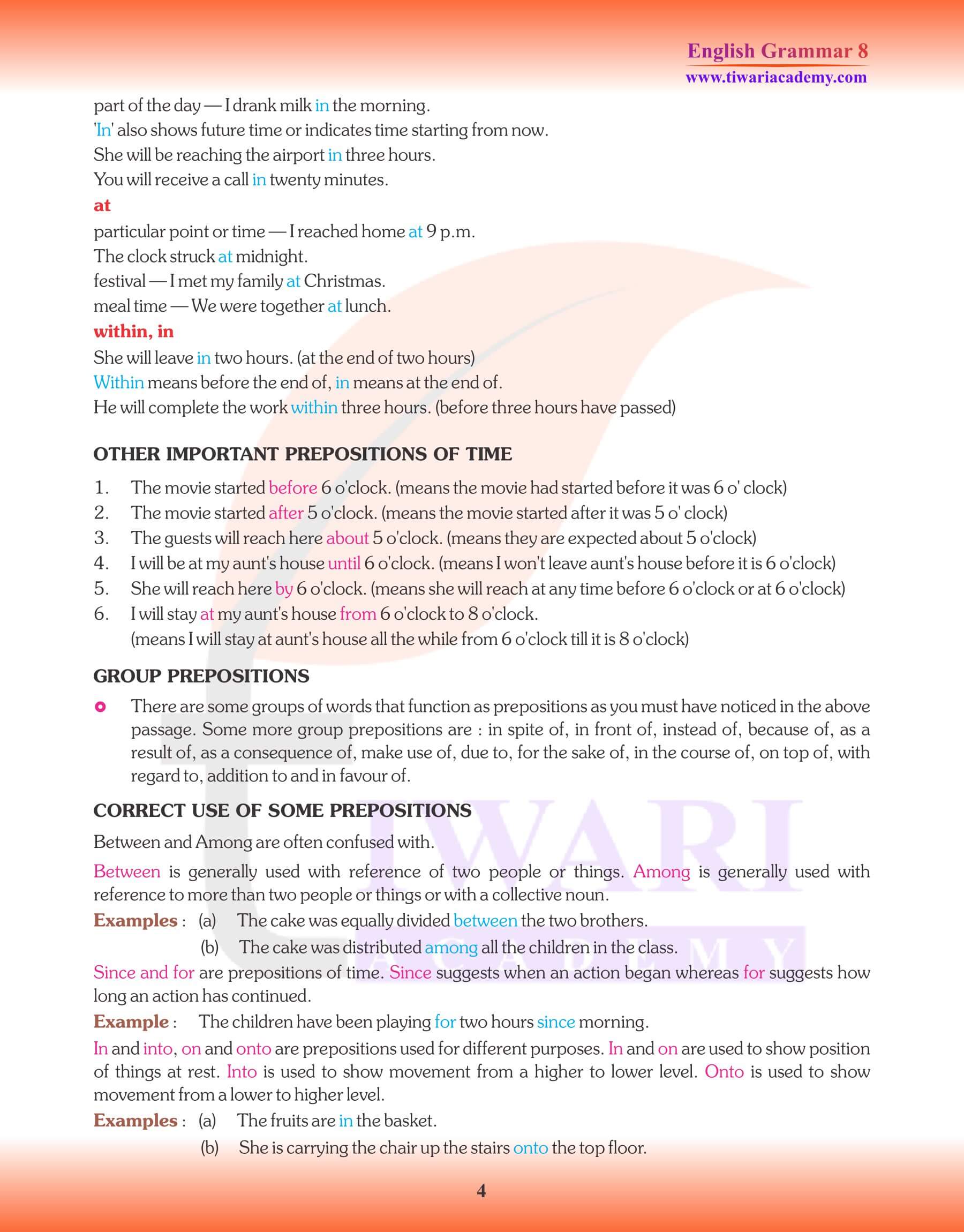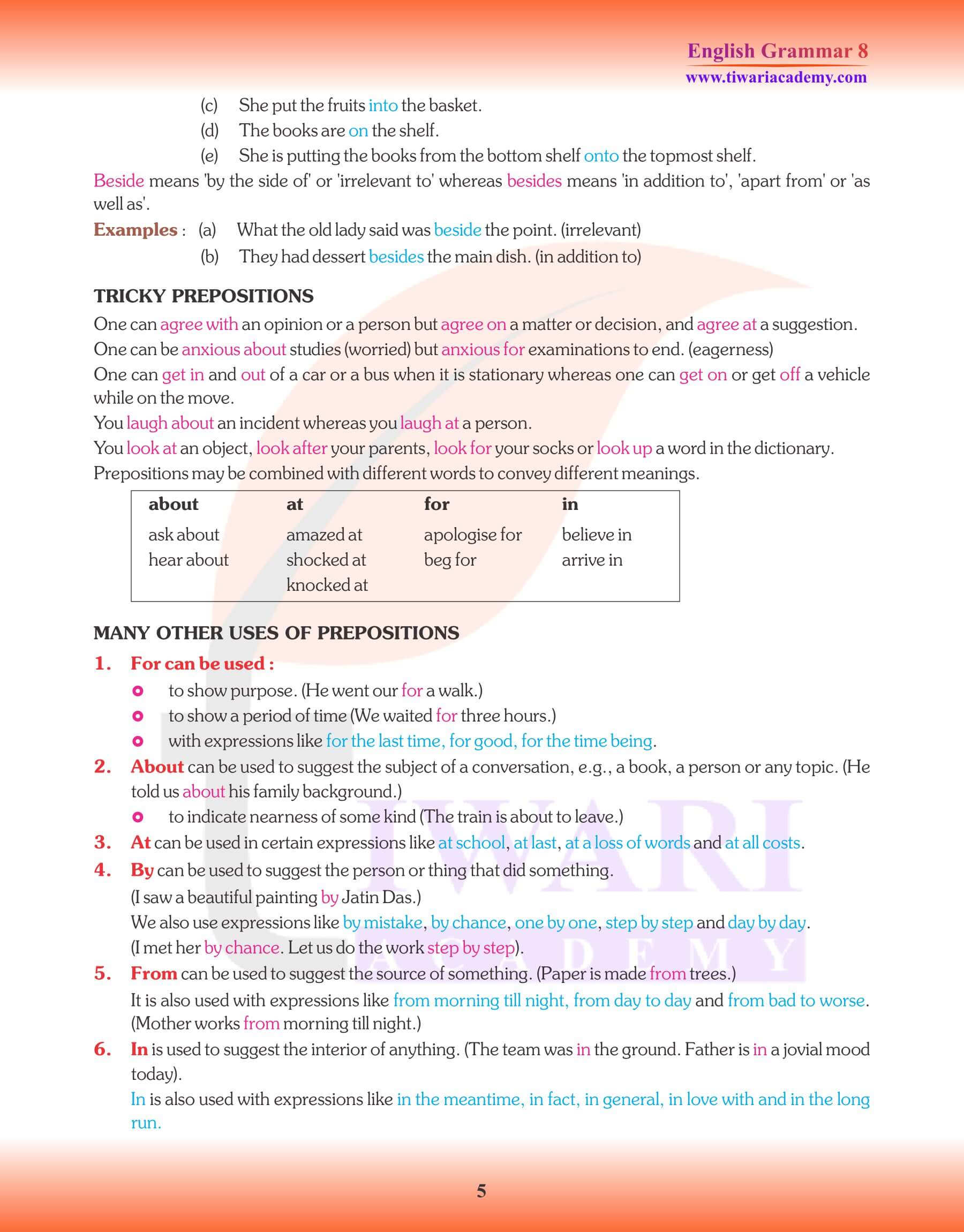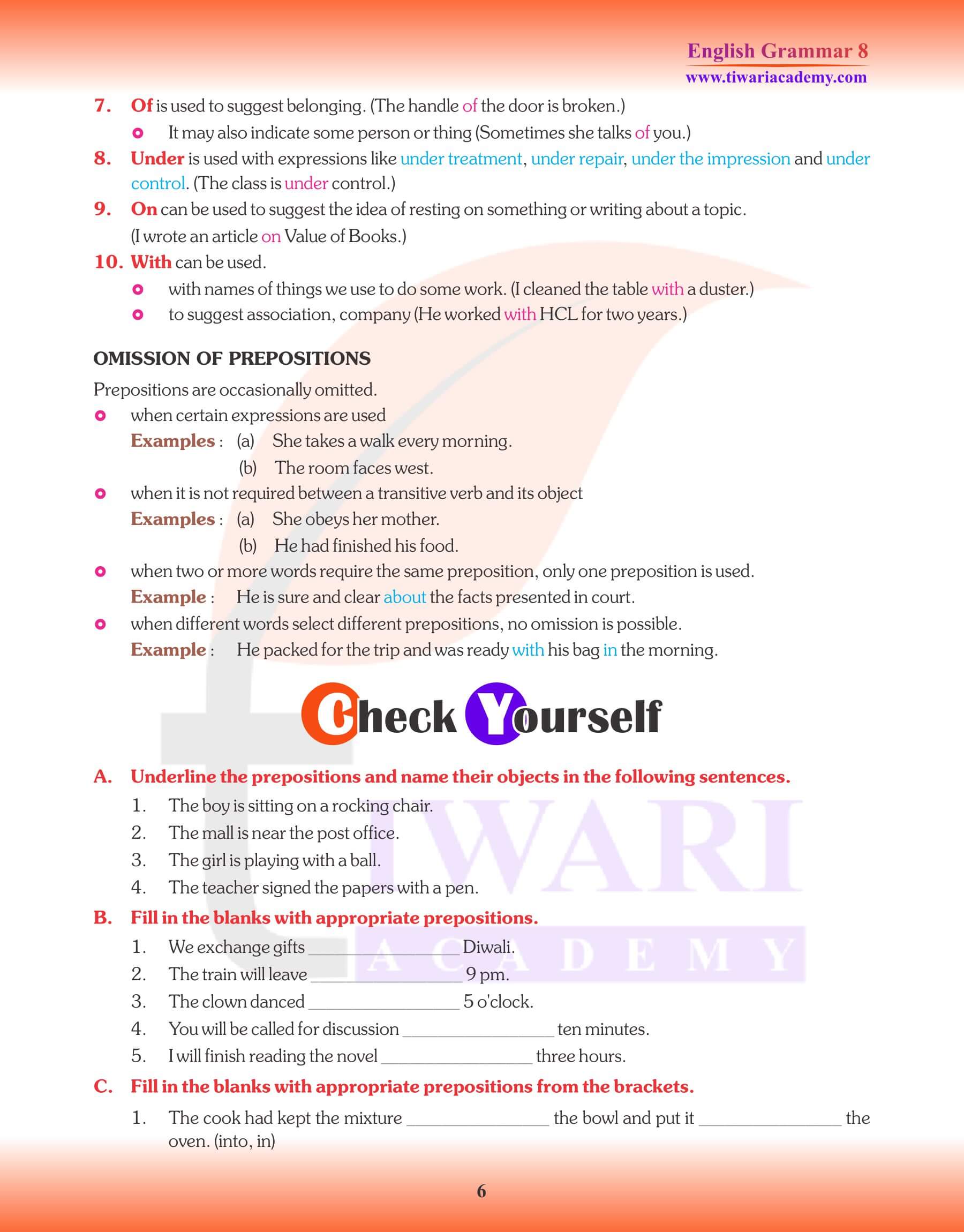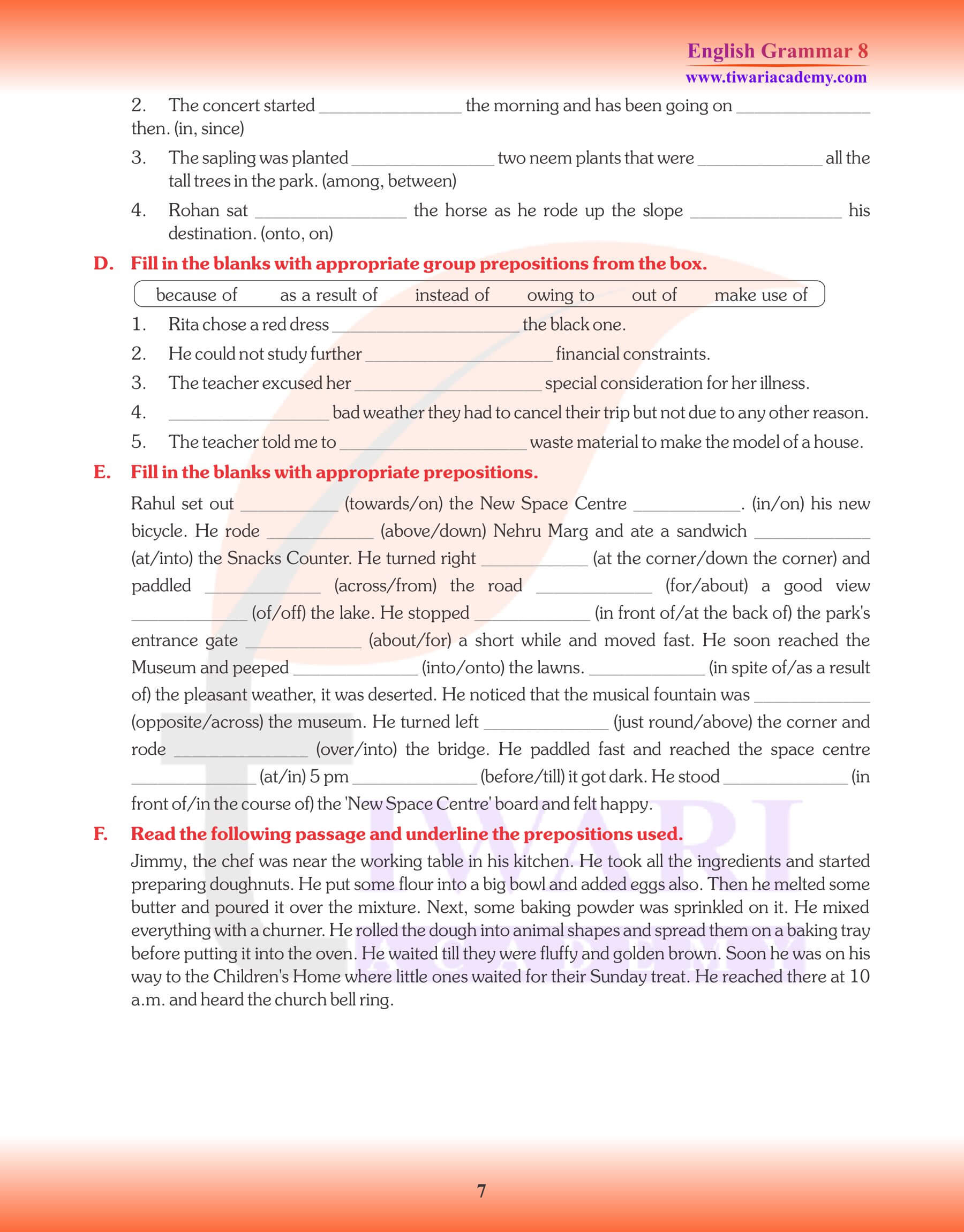Class 8 English Grammar Chapter 10 The Preposition. Prepositions are parts of Speech. They show a relationship between a noun and a pronoun and another part of the sentence The noun/pronoun is referred to as the object of proposition. A gerund can also be the object of the proposition but not an infinitive. Prepositions are mostly place mostly before their object. Prepositions are used to indicate position, movement and time preposition are also used as adverbs, adjectives and conjunctions.
Class 8 English Grammar Chapter 10 introduces students to the fascinating world of ‘The Preposition’. When diving into the depths of English grammar, understanding prepositions becomes a cornerstone. With platforms like Tiwari Academy offering specialized NCERT Solutions, students can now access detailed explanations and practice exercises, ensuring they grasp the nuances of using prepositions correctly in various contexts.
In the realm of English grammar, prepositions are essential elements that play a defining role in structuring sentences. Their primary function is to demonstrate the relationship between a noun or a pronoun (often referred to as the object of the preposition) and another part of the sentence, whether it be indicating direction, place, time, or manner. These relationships provide context and detail, enhancing the clarity and depth of communication.
| Class: 8 | English Grammar |
| Chapter: 10 | The Preposition |
| Books: | Textbook and Revision Notes |
| Academic Session: | 2024-25 |
Uses of Prepositions
At, In, On
1. I live at Aurangabad
2. My uncle lives in Delhi.
3. The poor man is on the verge of starvation.
In, Within, Before: In denotes at the end of a period of time; within denotes before the expiry of the period of time before is used for a point of time as,
1. I will return in a month.
2. I will return within a month.
3. I will do it before May next.
Interestingly, not only nouns and pronouns, but gerunds too can serve as the object for prepositions. A point to remember, however, is that infinitives cannot. For instance, while “She’s interested in reading” (where ‘reading’ is a gerund) is correct, using an infinitive as an object would be inappropriate.
Another distinct feature of prepositions is their placement. They are predominantly positioned before their object, offering clarity to their function and relationship within the sentence. For instance, in the sentence “The book is on the table,” the preposition ‘on’ precedes its object ‘table’, establishing a spatial relationship.
After, Behind: “After” generally refers to time; while “Behind” refers to place as, The boy came after 10 O’clock and stood behind the school building.
By, With: “By” is used after verbs in the Passive Voice to express the agent or the doer. “With” denotes the instrument with which the action is done as, The tiger was killed by the hunter with a gun.
Since, For, From: Since is used for “point of time”, while for is used for “period of time”, “From” is used for a point of time as,
1. I have not seen him since last Monday.
2. She has been ill for three months.
3. Men work from morning till evening.
In, Into: “In” denotes “rest within”, while “into” denotes “motion inwards” as,
1. Mother is in the room.
2. She went into the temple.
On, Upon, Over, Above: “On” shows rest and denotes contact of the surface “Upon” shows movement as,
- He sat on a bench.
- The dog sprang upon a cat.
- Jyoti is above me in the class.
- At noon the sun is over our heads.
Between, Among:- “Between” is used with two persons or things, “Among” is used with more than two as,
1. She divided her property between her two daughters.
2. The Rajputs quarreled among themselves.
Beside, Besides:- “Beside” means by the side of while “Besides” means in addition to as,
1. She came and sat beside me.
2. Besides being fined, he was punished.
About (nearness of some kind):
1. What do you know about her?
2. Tell me all about it.
Errors in the Use of Prepositions
| Incorrect | Correct |
|---|---|
| My friend lives at Delhi. | My friend lives in Delhi. |
| We went to home. | We went home. |
| She shirks from work. | She shirks work. |
| We pray God daily. | We pray to God daily. |
| I hit him by a stone. | I hit him with a stone. |
Role of Prepositions
Prepositions also showcase versatility. Beyond their primary role, they can be used in various capacities – as adverbs, adjectives, or even conjunctions. This multifaceted usage underscores their significance and the need for students to comprehend their application thoroughly.
Conclusively, the role of prepositions in English cannot be understated. They serve as connectors, bridging gaps and providing context to our statements. As learners progress through Chapter 10 of their Class 8 English Grammar curriculum, understanding prepositions becomes a building block for more advanced linguistic constructs. And with digital platforms offering tailored resources, mastering this topic is now more accessible than ever.
Over means as a higher position
- Water was flowing over plants and bushes. (Contact)
- At noon the sun is over our heads. (directly above)
- Sh. L.L. Chauhan is over fifty years old. (More than)
- My uncle lives over the street. (on the other side of)
